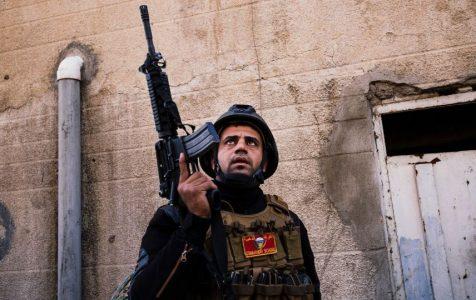
ISIS tactics that have left Iraqi special forces weakened
It took Iraqi forces three years to significantly drive Islamic State militants out of the country, but the group’s nontraditional tactics have damaged Iraq’s special forces, according to one major Iraqi military commander.
In December, Iraqi Prime Minister Haider al-Abadi declared victory over ISIS after Iraqi forces recaptured the areas along the border with Syria that were under the group’s control.
However, ISIS used a number of nontraditional tactics that have “weakened the country’s special forces morale and dispersed their true roles,” said Gen. Taleb Al Kanani.
“Were we able to fight the so-called Islamic State and end a war that has taken a toll on us? Definitely. But were we able to overcome the group’s ideology? Not quite yet,” the head of the Iraqi Joint Operations and Anti-terrorism Force said Monday during the 9th Middle East Special Operations Commanders Conference held in Amman, Jordan.
“One main challenge that we faced during our war with terrorists is the difficulty of confronting them in a traditional way because they were considered nontraditional enemies that used asymmetrical ways to try to defeat us,” he added. “So how come more than a thousand Iraqi members weren’t able to address the situation and overpower only 40 to 50 of them?
“What we have noticed in their war tactics, though, is that they tend to avoid direct confrontation. Instead, all their procedures are based on a psychological approach of terrorism.”
For example, he said, one strategy used by ISIS in Mosul involved taking control of civilian homes and gathering residents in the lower, ground floor while ISIS members position themselves on the top floor or the roof, from where they would target security forces. Return fire would eventually cause the house to fall apart on its inhabitants, causing loss of life and damage.
As another example, “they once exploded a bomb near a chlorine chemical element, which caused the Iraqi soldiers to inhale the yellow-colored smoke provoked by the bombing, thinking the rivals are using chemical weapons against them.”
The use of tunnels was also a common method used against national forces. Al Kanani noted that combating ISIS militants in tunnels mostly occurred in Fallujah and Mosul.
“The tunnels were mainly used to trap our special forces and mark a loss in their ranks,” he indicated. “When we liberated Al Mosul city back in July 2017, we noticed that ISIS worked on digging tunnels between streets and houses, which were used to move from one place to another without being seen and [which] secures the speed of escape to the new area of destination.”
Gen. Raymond Thomas, the head of U.S Special Operations Command, noted at the conference ISIS’ use of using human shields in urban environments, “which led us to join efforts in order to ensure there was no collateral damage as we try to clear these urban fields”.
The heavy use of social media platforms also played a role in ISIS’ overall strategy. The group fabricated fake messages and published fictional images as a means of information warfare, according to the Iraqi commander. He added that militants further confused Iraqi forces by disguising themselves as women.
Source: Defence News





